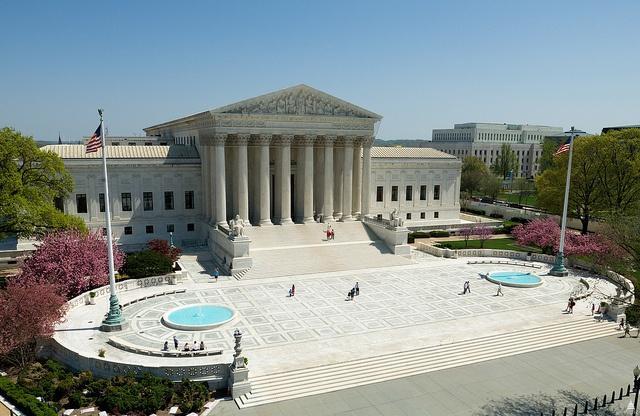
Section Branding
Header Content
Georgia State University law professor breaks down the implications of SCOTUS birthright ruling
Primary Content
LISTEN: Georgia State University law professor Eric Segall explains a new Supreme Court decision affecting injunctions. GPB's Sarah Kallis reports.

The U.S. Supreme Court sided with the Trump administration Friday in a ruling affecting the power of lower courts and birthright citizenship.
The court ruled 6-3 that lower courts do not have the power to issue an injunction, or block, President Donald Trump’s executive order on birthright citizenship nationwide.
Birthright citizenship is a concept laid out in the 14th Amendment of the U.S. Constitution, which says that anyone born in the U.S. automatically gains citizenship. Trump issued an executive order in January that would prevent babies born in the U.S. from automatically being considered citizens if neither of their parents are citizens or lawful permanent residents.
Three lower courts issued injunctions against the executive order, so it was unable to be implemented.
The ruling did not decide the merits of birthright citizenship, but rather if lower level courts are able rule on the constitutionality of an order for the entire country.
Georgia State University law professor Eric Segall said that the ruling could create differing laws on some constitutional issues from state to state, and could be used in other cases as well.
“If a federal agency does something allegedly unconstitutional in one part of the country, then it may be constitutional in another part of a country," he said. "And what's that agency going to do? That's very challenging and difficult."
The ruling allows the Trump administration to enforce the ban on birthright citizenship in districts where lower courts have not ruled the executive order unconstitutional. The order is set to go into effect in 30 days.

